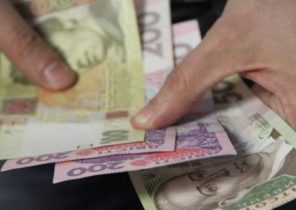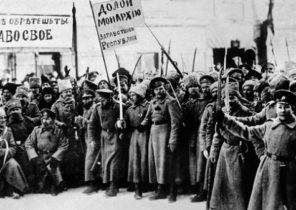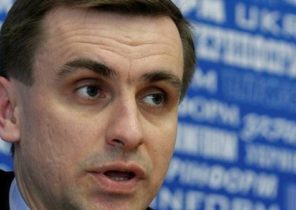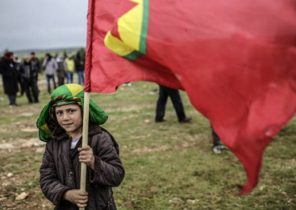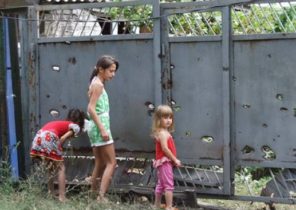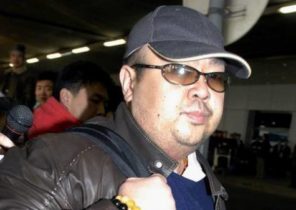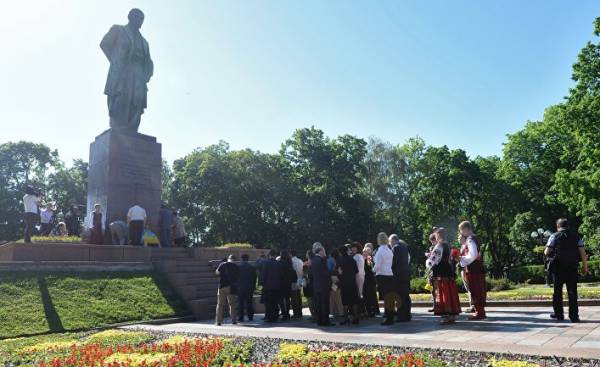
“I have no desire to be a soldier in this war of words,” — wrote the famous Ukrainian novelist Andrey Kurkov in 2012. That’s the way he responded to the uproar, which has risen because of the law proposed by the former President of Ukraine Viktor Yanukovych, according to which the Russian language was to obtain the status of a regional language.
Kurkov writes mostly in Russian, although in 2013 he supported the protests on the Maidan, in which Yanukovych fled the country, Ukraine turned to Europe. With his statement, he called not to involve the language policy in the conflict between Moscow and Kiev.
Unfortunately, his call was not heard, and the language war in Ukraine flared up with new force. Recently Parliament passed a bill according to which the national channels are established quota of 75% on TV shows and movies in the Ukrainian language. Earlier, President Poroshenko forbade such Russian social network as Vkontakte and Odnoklassniki, which has caused serious discontent of the Ukrainians.
In the near future will be submitted for consideration a bill, under which the Ukrainian language should function and be used as the state language “in all spheres of public life throughout Ukraine.”
At first glance in this situation, there is no contradiction. No doubt, the Ukrainian language, which for many decades remained the poor relation of the Russian language in their own country, deserves to be promoted and supported. However, how exactly this should happen, there are a lot of nuances. Many residents of Ukraine who do not Harbor any warm feelings towards Vladimir Putin and the Russian government, and who consider themselves to be Ukrainian patriots, still prefer to use Russian language in everyday life. These people find any attempt to force them to abandon their native language is an attack on their fundamental rights.
In the case of adoption the draft law on the state language will draw a new front line in Ukraine on the basis of nationality. In Article 8 there is a rather disturbing definition of “citizens of Ukraine who are not ethnic Ukrainians.” Article 51 is proposed to create a “control Commission”, whose “language inspectors” will be to ensure that the Ukrainian language was used in state institutions, schools and universities, and that the people using the Russian language, were punished according to the law.
Oksana Rawfoodist from “Self” and the Chairman of the Committee on foreign Affairs Hanna Hopko who have joined the group of initiators of the bill, said that the widespread use of the Russian language undermines Ukrainian statehood. Another member of Parliament, Ivan krulko from the faction “Fatherland”, said that to abandon the Russian language “is necessary for further development of the country, which should sever ties with Russia.”
However, perhaps the situation is somewhat different. Currently, many Ukrainian teachers and University professors are switching from Ukrainian to Russian and back again, depending on the preferences of their students, or at the request of the parents. For anybody not a secret that in Kiev, officially, very few Russian-language schools, but classes in many schools are conducted in Russian language, if the parents of students asking teachers informally.
This is an unofficial bilingualism, in which the official language is Ukrainian, but people widely use Russian language in everyday life contributes to a trend, namely that the Ukrainian strengthens its position in the country as the default language. According to the results of a survey conducted in may 2015, almost 60% of the population prefer in everyday life to speak the Ukrainian language — is a much higher percentage compared to twenty years ago.
If the truce in the language war is over, Moscow, undoubtedly, will again begin to take active measures in order not to concede its positions in the conflict. Any steps to limit the use of the Russian language, get such wide coverage in Russia, this is starting to border on hysteria. In February 2014 attempts Rada to cancel the law on language, adopted in the era of Yanukovych, became one of the pretexts for the subsequent annexation of Crimea. Taking advantage of extremely typical for that period of time, a hyperbole, a Russian Parliament, Franz Klintsevich, called the new bill “linguistic genocide”.
When in early may I visited Kiev and Odessa, the majority of those whom I asked about the new bill, responded with black humor. Many are convinced that the Ukrainian politicians resort to linguistic battles to mobilize their supporters and to disguise the lack of concrete solutions to the issues that really worry the public, such as corruption and economic inequality.
One teacher at the University, which receives about 150 euros a month, told me that she was able to adapt to the current situation, moving from Ukrainian into Russian and from Russian to Ukrainian, depending on the wishes and skills of its students. But, she said, if a “language inspectors”, her professional life will be much harder, and it will be much less time finding solutions to the educational challenges it faces. “Pay us a decent wage, and we are going to lecture even in Chinese!” — she added.
